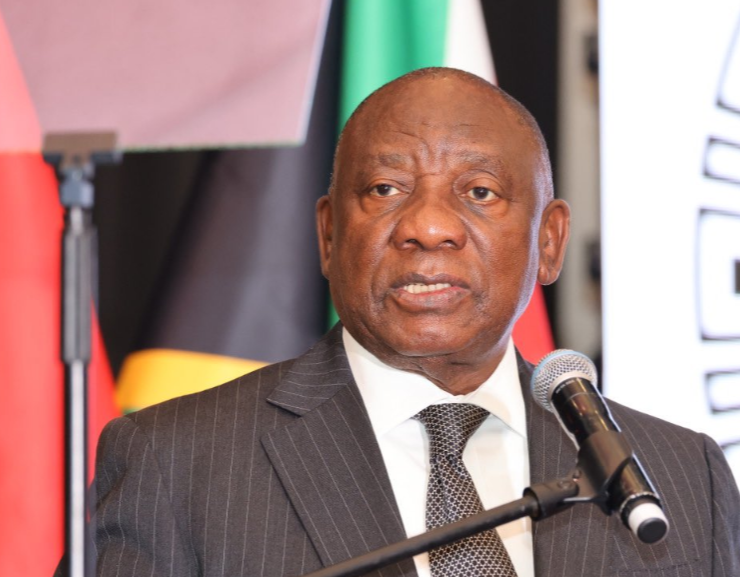Cape Town – President Cyril Ramaphosa has called for a united national effort to ensure that no South African goes hungry, warning that millions of households remain food insecure despite decades of government intervention.
Writing in his weekly newsletter on Monday, the president said the issue of food security was central to South Africa’s social justice agenda and a key priority for the Government of National Unity (GNU).
He was reflecting on last week’s 7th Social Justice Summit held at Stellenbosch University, where government representatives, academics, and civil society discussed strategies to end poverty and hunger. The summit also introduced the Musa Plan, a data-driven initiative by the Centre for Social Justice aimed at using research and resource mobilisation to eradicate poverty.
“Overcoming poverty and tackling the cost of living for South Africans is one of the strategic priorities of the Government of National Unity,” Ramaphosa said.
According to the president, between 15 and 16 million South Africans currently have inadequate or severely inadequate access to food.
He noted that while South Africa is among 29 countries where the right to food and water is enshrined in the Constitution, more needs to be done to make this right a lived reality for all citizens.
Dear Fellow South African,
Last week, the 7th Social Justice Summit, organised by the Centre for Social Justice at Stellenbosch University, reflected on our country’s progress towards achieving food security as a key component of social justice.
🔗 https://t.co/pP4HURkZOW pic.twitter.com/chPOedIsCz
— Cyril Ramaphosa 🇿🇦 (@CyrilRamaphosa) October 20, 2025
Longstanding programmes showing impact
Since 1994, government has implemented a range of measures to tackle hunger — including school feeding schemes, free education, social grants, and primary healthcare. Ramaphosa highlighted that the social wage accounts for around 60% of government spending before interest payments, one of the highest among upper-middle-income nations.
He cited a World Bank report (2021) that described South Africa’s social assistance system as “effective, well-targeted and providing sizeable benefits to the poorest households”.
One of the most successful interventions, the National School Nutrition Programme, currently provides meals to over 9 million learners daily, contributing to better attendance, concentration, and academic performance.
“Last year, learners from the poorest schools — which make up 60% of schools — accounted for 67% of all bachelor passes achieved,” Ramaphosa noted.
Rising food prices deepen hardship
Despite these efforts, the president acknowledged that many South African households are still struggling to afford nutritious food due to high unemployment and rising prices.
Recent Statistics South Africa data shows food and non-alcoholic beverage inflation continues to climb, with headline inflation reaching a 10-month high last month.
While basic food items have been zero-rated for VAT since 1991, Ramaphosa said the government is also tackling unfair pricing practices in the food market.
The Competition Commission has recently conducted inquiries into anti-competitive behaviour in several sectors, including bread, milling, fresh produce, and poultry. Earlier this year, it facilitated a R1 million settlement with an edible oils producer accused of price-fixing.
“Practices like price-fixing that inflate food prices are directly contributing to food insecurity for households,” Ramaphosa said.
Private sector urged to step up
The president called on major retailers to play a greater role in improving access to affordable and nutritious food. He praised initiatives like the Shoprite Group’s R5 product line, which provides low-cost essential items, but said more must be done.
“The ‘Big Five’ retail companies can and must play a far greater role in making nutritious food more affordable for South African households,” he added.
Collaborative approach needed
Ramaphosa welcomed the Musa Plan’s introduction, saying it complements government programmes and underscores the importance of partnerships between government, business, labour, and civil society.
“The ultimate measure of the success of our democratic dispensation lies in our ability to ensure that no person goes hungry,” he concluded.
The president’s remarks come amid ongoing debates over the high cost of living and food insecurity, which continue to disproportionately affect low-income households across the country.
Follow African Insider on Facebook, X and Instagram
Picture: X/@EducationGP1
For more African news, visit Africaninsider.com
Compiled by Betha Madhomu



